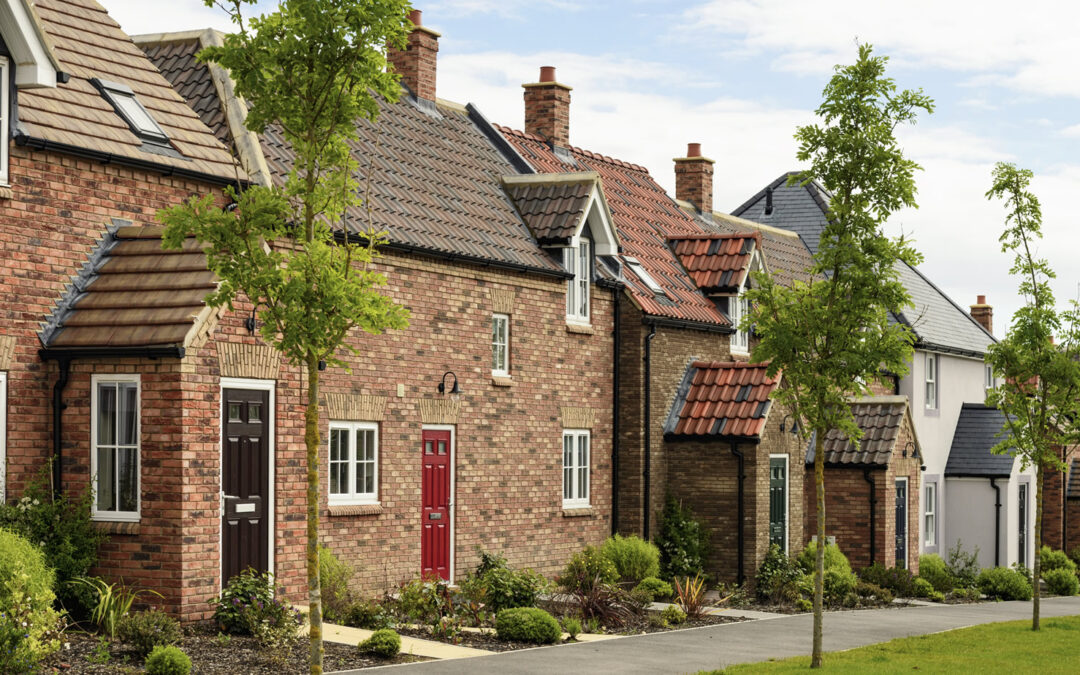Countryside Properties (CSP) shares have surged 27% in opening trade on talk of a 295p per share offer, which values the British developer at £1.5bn.
This offer is set to come from private equity company Inclusive Capital Partners (In-Cap), which has said it is considering a bid for the business. The bid comes despite past rejections from Countryside Properties’ board.
In-Cap currently owns 45.8 million shares, reflecting a 9.2% stake in Countryside Properties. But is In-Cap right to want more in this current climate of uncertainty?
In-Cap has done much to try and woo the developer. The founder and managing partner of In-Cap, Jeffrey Ubben, said: “In-Cap was founded to support businesses which generate a positive impact on the environment and society.
Get the week’s top news delivered directly to your inbox – Sign up for our newsletter
“We believe Countryside is meeting a critical societal need and, as a holder of approximately 9% of the issued share capital of Countryside, In-Cap believes Countryside is best positioned to service this role and success as a private company under ownership of investor with a long-term investment approach.”
But In-Cap’s approach so far has been unsuccessful – and some believe it will be a third time unlucky, but this could instead give traders the opportunity to short the stock.
“It appears very unlikely that this 295p/share would be accepted given the Board of Countryside has declined to engage with In-Cap. This suggests that the Board believes there is significant work to do internally to ensure that the Company returns to an acceptable level of profitability,” said Andy Murphy, director at Edison Group.
Sam Cullen, an analyst at Peel Hunt, also believes In-Cap’s offer is unlikely to be accepted, given that many of the company’s top shareholders are supportive of management’s turnaround strategy.
In-Cap may well continue with its bid in the belief that there’s value to be had.
“There is an old stock market saying that ‘you can have good news and cheap stocks, just not both at the same time,” explained Russ Mould, investment director at AJ Bell. “There has been precious little good news at Countryside Partnerships for a while but the share price plunge to five-year lows has drawn a bid from Inclusive Capital, suggesting they thought there was a bargain to be had.
Mould added: “In the case of Countryside, before the bid, the firm had a market capitalisation of £1.2bn. According to its first-half accounts, the FTSE 250 firm had £1.2bn of inventory and £0.2bn of cash sitting on its balance sheet, the sort of asset backing which could easily attract the roving eye of a predator, be they either a trade or financial buyer.
“That again takes investors back to the multiple of book, or net asset value (NAV). An old rule of thumb is that builders’ shares look potentially good value when they trade at one times NAV or less, and they are expensive when they trade at two times or more.
“Countryside was trading toward the lower end of that range, and several FTSE 100 and FTSE 250 builders still do. Even Inclusive Capital’s 295p-a-share offer does not take Countryside’s stock to the top of that 1.0x to 2.0x times range for historic NAV so a counter bid, or at least a higher offer to clinch the deal, cannot be ruled out completely,” Mould concluded.
So could this bid for Countryside Properties prompt other private equity companies to bid for British developers? Some feel this is an unlikely scenario, given the impending cost of living crisis and the costs of mediation for fire safety following the Grenfell building fire disaster in 2017.
After the tragic blaze, which killed 72 people, many investigations and rules were put in place to prevent future catastrophes and improve the safety of other high-rise buildings that were built in a similar fashion. This has resulted in British developers signing on to new safety pledges at considerable cost.
Murphy said: “I think it unlikely that this move will prompt others, unless there are other housebuilders that are on very low valuation ratios, perhaps for very specific reasons. At this point in the cycle, with rising interest rates etc, it feels like the wrong time for corporate activity of this nature.”
He added: “That said, the yields in the sector are very high, for example Persimmon c.8.8%, Taylor Wimpey 6.5%, which may be attractive for some investors who are more interested in income than in capital growth.”
Source: Capital.com
Can’t stop reading? Read more
Nextalia hires ex-JPMorgan banker Enrico Monti to launch private credit push
Nextalia hires ex-JPMorgan banker Enrico Monti to launch private credit push Nextalia has...
US private funds get extra year as SEC extends risk reporting deadline
US private funds get extra year as SEC extends risk reporting deadline The US Securities and...
General Atlantic backs OSEA Malibu as clean beauty brand eyes global expansion
General Atlantic backs OSEA Malibu as clean beauty brand eyes global expansion General Atlantic...




